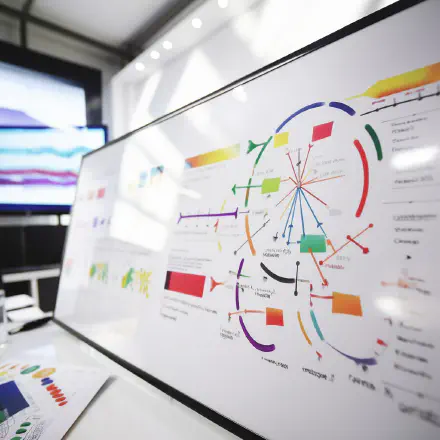
Introduction
Parenting is an incredibly rewarding yet demanding job, especially for busy parents who juggle multiple responsibilities and commitments. From managing work and household tasks to taking care of their children’s needs, busy parents often find themselves stretched thin and struggling to maintain their attention and focus. This can lead to decreased productivity, increased stress levels, and a reduced sense of overall well-being.
Fortunately, there are attention enhancement techniques that can help busy parents improve their ability to focus and manage their attention effectively. These techniques not only boost productivity but also contribute to a more balanced and fulfilling life for both parents and their families.
In this article, we will explore various attention enhancement techniques specifically designed for busy parents. We will delve into the concept of attention and its impact on our ability to focus. We will identify and discuss common challenges that busy parents face in managing their attention and explore how external factors, such as technology and work, can affect their focus. Furthermore, we will highlight the consequences of poor attention management for both parents and their children.
The main focus of this article, however, will be on providing practical strategies and techniques that busy parents can implement to enhance their attention. We will delve into the following attention enhancement techniques:
-
Mindfulness and Meditation: We will explain the concept of mindfulness and its benefits in improving attention and focus. Step-by-step instructions for practicing mindfulness and meditation will be provided, along with suggestions on how busy parents can incorporate these exercises into their daily routines.
-
Time Management Strategies: Effective time management is crucial for busy parents. We will introduce techniques such as prioritization, planning, and setting boundaries, providing practical tips on how parents can allocate their time more efficiently. The role of technology and productivity tools in time management will also be discussed.
-
Physical Exercise and Healthy Lifestyle: The connection between physical exercise, mental acuity, and attention will be explored. Suggestions for incorporating regular exercise into a busy parent’s schedule, as well as the importance of maintaining a healthy lifestyle through proper nutrition and sleep, will be shared.
-
Creating an Optimal Environment: We will discuss the significance of a clutter-free and organized workspace or living area in enhancing attention. Tips on minimizing distractions and creating a conducive environment for focus will be provided, along with discussion on the potential benefits of noise-cancelling headphones, white noise machines, and other tools.
-
Seeking Support and Delegating Tasks: Busy parents often feel overwhelmed and could benefit from seeking support from their partners, family members, or friends. We will discuss the positive impact of delegating certain tasks and responsibilities to free up mental space. Suggestions for effective communication and collaboration with others will also be provided.
In conclusion, attention enhancement techniques can significantly improve the focus and productivity of busy parents. By implementing these techniques, parents can regain control over their attention, reduce stress, and create a more balanced and fulfilling life for themselves and their families. Throughout this article, we will provide practical advice and guidance for busy parents to gradually incorporate these attention enhancement techniques into their lives for long-term benefits.
Understanding Attention
Attention is a cognitive process that allows us to select and focus on specific stimuli or information while filtering out distractions. It plays a crucial role in our ability to concentrate, learn, make decisions, and complete tasks efficiently. In the context of busy parents, attention is especially important as it impacts their daily responsibilities and interactions with their children.
Selective Attention
Selective attention refers to the ability to focus on a particular stimulus while ignoring others. It enables busy parents to concentrate on essential tasks or conversations, even in the presence of competing distractions. For example, a parent may need to prioritize their child’s needs over the background noise of household chores or personal technology.
Sustained Attention
Sustained attention involves maintaining focus on a specific task or activity for an extended period. It is crucial for busy parents when engaging in activities that require prolonged attention, such as helping children with homework or engaging in quality time together. Sustained attention allows parents to be present and fully engaged, promoting stronger parent-child relationships.
Divided Attention
Divided attention, also known as multitasking, refers to the ability to manage multiple tasks simultaneously. Busy parents often find themselves juggling various responsibilities, such as managing household chores while attending to their children’s needs. Divided attention can help parents navigate these multiple demands effectively, but it is important to note that multitasking can diminish overall attention and task performance.
Understanding these different aspects of attention is vital for busy parents to identify their strengths and weaknesses in managing their focus. By recognizing the specific areas that need improvement, parents can implement attention enhancement techniques to enhance their overall attentional abilities and alleviate the challenges they face.
Common Challenges Faced by Busy Parents
-
Identifying and discussing the common distractions and interruptions busy parents face: Busy parents often face numerous distractions and interruptions throughout their day, which can significantly impact their ability to focus and accomplish tasks. Some common distractions include:
- Digital distractions: Constant notifications from smartphones, emails, and social media platforms can divert attention and interrupt workflow.
- Household responsibilities: Managing household chores, cooking, cleaning, and other responsibilities can often compete for a busy parent’s attention.
- Work-related interruptions: Whether working from home or in an office, interruptions from colleagues, phone calls, meetings, or urgent tasks can disrupt focus.
-
Exploring how external factors such as technology, work, and household responsibilities impact their attention: External factors play a crucial role in influencing a busy parent’s attention. The impact of these factors can range from subtle to significant. Some examples include:
- Technology overload: The constant presence of smartphones, tablets, and computers can lead to excessive screen time and a diminished ability to concentrate.
- Work demands: Demanding work schedules, deadlines, and long hours can result in mental exhaustion and reduced attention span.
- Household responsibilities: Juggling multiple household tasks while trying to focus on work or personal matters can create mental clutter and hinder attention.
-
Highlighting the consequences of poor attention management for both parents and their children: Poor attention management can have adverse effects on both parents and their children. Some consequences include:
- Decreased productivity: Inability to manage attention leads to reduced efficiency, unfinished tasks, and increased stress levels.
- Impact on relationships: Frequent distractions and lack of focus can strain relationships with partners, children, and other family members.
- Impaired child development: When parents are unable to provide undivided attention to their children, it can impact their emotional well-being, cognitive development, and overall sense of security.
- Increased stress and burnout: Constantly battling distractions, multi-tasking, and struggling to maintain focus can lead to chronic stress and burnout for busy parents.
By understanding and addressing these common challenges, busy parents can begin to implement attention enhancement techniques to overcome their difficulties and improve their ability to focus, ultimately leading to a more balanced and fulfilling life for themselves and their families.
Attention Enhancement Techniques
1. Mindfulness and Meditation
-
Mindfulness and its benefits:
Mindfulness is the practice of being fully present and aware of the present moment without judgment. It has been proven to improve attention and focus by training the brain to constantly redirect its attention back to the present. Mindfulness also helps reduce stress, increase overall well-being, and enhance mental clarity.
-
Step-by-step instructions for practicing mindfulness and meditation:
- Find a quiet and comfortable space where you can sit or lie down.
- Close your eyes and take a few deep breaths, focusing on the sensation of the breath entering and leaving your body.
- Bring your attention to the present moment, observing any thoughts or sensations that arise without judgment.
- If your mind wanders, gently bring your focus back to the present moment and the sensation of your breath.
- Start with short meditation sessions, such as 5-10 minutes, and gradually increase the duration as you become more comfortable.
-
Incorporating mindfulness exercises into daily routines:
- Mindful eating: Paying full attention to the taste, texture, and smell of your meals.
- Mindful walking: Being aware of each step and the sensations in your feet as you walk.
- Mindful parenting: Engaging fully with your children during daily activities, such as playing or reading, without distractions.
2. Time Management Strategies
-
Effective time management techniques:
Prioritization: Identify the most important tasks and focus on completing them first.
Planning: Set specific goals and create a schedule or to-do list to stay organized and on track.
Setting boundaries: Learn to say no to non-essential tasks and delegate responsibilities when possible.
-
Practical tips for busy parents:
- Utilize technology: Use calendar apps, task management tools, and digital reminders to stay organized.
- Break tasks into manageable chunks: Divide larger tasks into smaller, more manageable parts to avoid feeling overwhelmed.
- Allocate dedicated time for focused work: Set aside uninterrupted blocks of time for important tasks, minimizing distractions.
-
The role of technology and productivity tools:
Technology can be both a distraction and a helpful tool for time management. It’s important for busy parents to establish boundaries and limit technology usage when it’s not necessary for work or communication. Productivity tools like time tracking apps, project management software, and automation tools can also help streamline tasks and increase efficiency.
3. Physical Exercise and Healthy Lifestyle
-
Connection between physical exercise, mental acuity, and attention:
Regular physical exercise has been shown to improve cognitive function, including attention and focus. Exercise increases blood flow to the brain, releases endorphins, and reduces stress, all of which can positively impact attention span and mental alertness.
-
Suggestions for incorporating exercise into a busy parent’s schedule:
- Prioritize physical activity: Set aside dedicated time for exercise, even if it’s just a short walk or workout.
- Combine exercise with daily tasks: For example, walk or bike instead of driving for errands or incorporate physical movement into household chores.
- Involve the family: Engage in physical activities together, such as family walks or bike rides, to make exercise a fun and shared experience.
-
Importance of maintaining a healthy lifestyle:
Proper nutrition and adequate sleep are essential for optimal brain function and attention. Busy parents should prioritize healthy eating habits, ensuring they consume nutritious meals and snacks throughout the day. Sufficient sleep is also crucial for restoring attention and cognitive abilities, so creating a consistent sleep routine is key.
4. Creating an Optimal Environment
-
Significance of a clutter-free and organized workspace or living area:
A cluttered environment can be distracting and overwhelming, making it harder to maintain focus. Creating an organized and tidy workspace or living area promotes a sense of calm and helps eliminate unnecessary distractions.
-
Tips for minimizing distractions and creating a conducive environment for focus:
- Declutter regularly: Regularly clean and organize your physical environment to reduce visual and mental clutter.
- Designate a dedicated workspace: Create a specific area where you can work or concentrate without interruptions.
- Minimize noise distractions: Consider using noise-cancelling headphones, a white noise machine, or other tools to block out unwanted sounds.
-
Potential benefits of noise-cancelling headphones, white noise machines, and other tools:
Noise-cancelling headphones can help block out environmental noises and create a focused auditory environment. White noise machines can mask distractions and create a soothing background noise that aids concentration. Other tools, such as task timers or productivity apps, can assist in maintaining focus and managing time effectively.
5. Seeking Support and Delegating Tasks
-
Benefits of seeking support from partners, family members, or friends:
Busy parents often juggle multiple responsibilities, and seeking support can help alleviate some of the mental and physical burdens. Sharing tasks and responsibilities with others not only frees up mental space but also strengthens familial bonds and promotes a sense of collaboration.
-
Suggestions for effective communication and collaboration with others:
- Clearly communicate your needs and expectations: Clearly express the tasks you need assistance with and discuss how they can be divided among family members or friends.
- Delegate responsibilities based on strengths and availability: Assign tasks to individuals who are best suited for them and have the time and willingness to contribute.
- Express gratitude and acknowledge contributions: Show appreciation for the support received and acknowledge the efforts and contributions made by others.
By implementing these attention enhancement techniques, busy parents can regain control over their focus, improve productivity, and create a more balanced and fulfilling life for themselves and their families.
Conclusion
In conclusion, attention enhancement techniques offer invaluable solutions to the challenges faced by busy parents in managing their attention and focus. By understanding the concept of attention and its significance in various aspects of their lives, parents can take proactive steps to improve their productivity and overall well-being.
The first attention enhancement technique is mindfulness and meditation. By practicing mindfulness, parents can cultivate a heightened awareness of their thoughts and emotions, leading to improved attention and focus. Incorporating meditation into their daily routines can help parents develop a sense of calm and mental clarity, enabling them to better navigate the demands of their busy lives. By following simple step-by-step instructions, busy parents can cultivate mindfulness and meditation practices that bring lasting benefits to their attention and focus.
Time management strategies play a crucial role in enhancing attention. By effectively prioritizing tasks, planning their schedules, and setting boundaries, parents can allocate their time more efficiently and avoid feeling overwhelmed by competing demands. Leveraging technology and productivity tools can also optimize time management, allowing parents to streamline their responsibilities and create more dedicated focus time. By implementing these time management techniques, busy parents can regain control over their attention and maximize their productivity.
Physical exercise and maintaining a healthy lifestyle are key factors in enhancing attention and mental acuity. Engaging in regular physical activity not only improves physical health but also boosts cognitive function, including attention and focus. Busy parents can incorporate exercise into their daily routines by choosing activities that suit their preferences and schedules. Additionally, by prioritizing proper nutrition and ensuring sufficient sleep, parents can optimize their attention and overall well-being.
Creating an optimal environment is another essential attention enhancement technique. A clutter-free and organized workspace or living area can minimize distractions and create a conducive environment for focus. Simple tips such as minimizing visual clutter, utilizing noise-cancelling headphones, or incorporating white noise machines can significantly enhance attention and concentration. By consciously designing their environment for maximum focus, busy parents can create an atmosphere that supports their attention enhancement goals.
Seeking support and delegating tasks are key strategies for managing attention effectively. Busy parents can lean on their partners, family members, or friends for support, both in terms of sharing responsibilities and providing emotional encouragement. Delegating certain tasks not only frees up mental space but also fosters effective collaboration and communication with others. By leveraging their support network and effectively delegating tasks, parents can alleviate the burden on their attention and create a more balanced and fulfilling life.
Incorporating attention enhancement techniques into their lives can have a transformative impact on the overall well-being of both parents and their children. By regaining control over their focus, improving productivity, and finding balance, busy parents can experience a more fulfilled and connected family life. The positive outcomes of attention enhancement extend beyond the individual; they ripple through to the parent-child relationship, fostering a nurturing and present connection. By implementing these techniques gradually, busy parents can pave the way for long-term benefits and create a more harmonious and rewarding journey for themselves and their families.
By taking steps to enhance their attention and focus, busy parents can reclaim their mental clarity, improve productivity, and ultimately create a more balanced and fulfilling life for themselves and their families. Let us embrace these attention enhancement techniques and embark on a journey towards a more attentive and present life.



